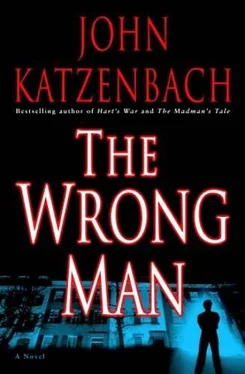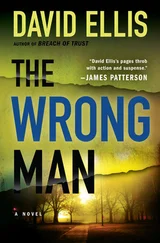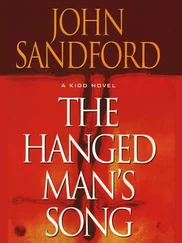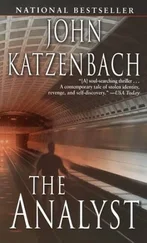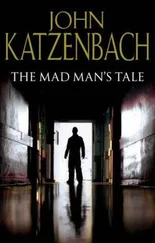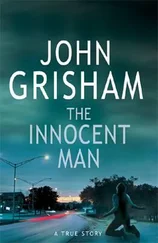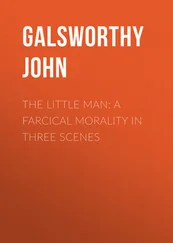Immediately the following morning, after the less-than-satisfactory meeting with Sally and Hope, like any proper academician he had immersed himself in a study of the phenomenon represented by Michael O’Connell. Descending upon his local library, he started researching compulsive and obsessive behaviors. Books, magazines, and newspapers crowded his desk in a corner of the reading room. An oppressive, heavy quiet filled the space, and Scott suddenly felt that he could barely breathe.
He looked up in near panic, his heart moving quickly as if it were close to bursting.
What he had absorbed that morning was a litany of despair.
Death had surrounded him. Over and over, he had read about this woman here, and that woman there, young, middle-aged, even elderly, who had been the object of some man’s driven obsession. They had all suffered. Most had been killed. Even the survivors had been crippled.
It seemed to make no difference where the women were located. North or South, in the United States or abroad. Some were young, students like Ashley. Others were older. Rich, poor, educated, or impoverished, it was all irrelevant. Some had once been married to their stalkers. Some had been coworkers. Some had been classmates. Some had been lovers. All had tried all sorts of techniques, had turned to the law, turned to their families, friends, any possible source of help, to try to extricate themselves from the unwanted, relentlessly obsessive attention. He read undaunted desire.
All had found it useless to seek help.
They were shot, stabbed, beaten. Some managed to live. Many did not.
Sometimes children died alongside them. Sometimes coworkers or neighbors died, the collateral damage of rage.
Scott reeled under the onslaught of information. It made him dizzy as he began to see the trap Ashley was in. On page after page, in every book and article, the single common denominator was love.
Of course, he understood, it wasn’t real love. It was something wildly perverse, emanating from the darkest part of a man’s imagination and heart. It was something that deserved a spot in forensic psychiatric texts, not Hallmark cards. But the sort of love that he read about seemed to have found a foothold in each case, and this scared him even more.
Scott started to grab book after book filled with story after story, and tragedy after tragedy, searching for the one that would tell him what to do. His eyes raced over the words; he flipped pages in rapid succession, haphazardly tossing one book down and seizing another, driven by mounting anxiety, all the time searching for the one that would tell him the answer. As a historian, an academic, he believed that the answer was written somewhere, a paragraph on some page. He lived in a world of reason, of structured argument. Something in his world had to be able to help.
The more he insisted this to himself, the more he knew how fruitless his search was destined to be.
Scott rose, pushing back so hard from the desk that the heavy oaken library chair crashed back on the floor, sending a noise like a shot through the quiet space. He could suddenly feel the eyes of everyone in the room burning into his back, but he stumbled away from the table, as if he’d been wounded, dizzy, clutching at his chest. In that moment all he could do was panic. He gestured wildly at all the research, his throat closing, turned, abandoning all the papers. He ran, right through the card catalogs, past the reference desk and the librarians who watched him, shocked, never having seen a man thrust into so much fear by the printed word. One tried to call after him, but Scott could hear nothing as he burst out beneath an overcast sky, the air less chilled than his heart, knowing only that he had to get Ashley out of the path she was on, and do it quickly. He had no idea precisely how to achieve this, but he knew he had to act, and as fast as he could.
Sally, too, started that day filled with decisions she thought were eminently reasonable.
It seemed to her that the first order of business was to really measure what sort of individual her daughter had brought into their lives. That he was clever with a computer and had tampered with each of their lives seemed clear. She dismissed the instinct to take all the bits and pieces of information to the police, mostly because she wasn’t yet sure that they would do any more than hear her complaint, and because she might jeopardize the integrity of her lawyer-client relations by doing so. Involving the police, she thought, would be a poor idea, right then.
What troubled her was that O’Connell, assuming he had pulled these things off, which she wasn’t 100 percent sure was true, seemed to have an instinct for subtlety that was dangerous. He seemed to know how to hurt someone in ways that weren’t defined by a blow or a gunshot, but by something more elusive, and this scared her. That he knew how to make their lives miserable was a danger that truly made her pause.
Still, she reminded herself, O’Connell wasn’t really their match.
Or, more accurately, he wasn’t a match for her. Scott, she was unsure of. Years of working in the polite society of a small liberal arts college had taken away the edgy toughness that she had been attracted to when they were first married. Back then, he’d been a veteran when it was unpopular to be one, and he’d approached learning and school with a tough-mindedness she’d found compelling. After he’d received his doctorate, and they were married and had Ashley and she had already decided to go to law school herself, she’d been aware that he was growing softer, somehow. As if the impending arrival of middle age affected not only his waistline, but his attitude as well.
“All right, Mr. O’Connell,” she said out loud. “You’ve screwed with the wrong family. Now a little surprise or two for you.”
She turned away and threw herself into her chair and reached for her phone. She had found the number she wanted in her Rolodex, and she dialed it rapidly. She was even patient when she was put on hold by a secretary. When she heard the voice come on the line, she felt reassured.
“Murphy here. What can I do for you, Counselor?”
“Hello, Matthew. I’ve got a problem.”
“Well, Ms. Freeman-Richards, that’s absolutely the only reason in the entire world that folks call this number. Why else talk to a private investigator? So, what’s it to be on this occasion? A divorce case up there in that nice little city of yours? Something that has turned a tiny bit nastier than folks intended, perhaps?”
Sally could picture Matthew Murphy at his desk. His office was in a nondescript and slightly bedraggled old building in Springfield, a couple of blocks away from the federal courthouse, on the edge of a pretty run-down area. Murphy, she assumed, liked the anonymity that the place gave him. Nothing flashy and attention-grabbing for him.
“No, not a divorce, Matthew.”
She could have called some considerably more upscale investigators. But Murphy had a far more checkered background, and a no-nonsense attitude that she thought might come in handy. Also, hiring someone from outside her own city was less likely to create any gossip in the county courthouse.
“Something else, then, Counselor? Perhaps something more, shall I say, tricky?”
He was, she thought, able to read much in the few words she’d spoken.
“How are your connections in the Boston area?” she asked.
“I still have some friends there.”
“What sort of friends?”
He laughed before replying, “Well, some friends on both sides of the great divide, Counselor. Some not-so-nice types always looking for an easy score, and some of the guys looking to arrest them.”
Murphy had been a state police homicide detective for twenty years before taking early retirement, and subsequently opening his own office. Rumors suggested that the severance package he’d received was part of an agreement to keep quiet about some activities of a Worcester narcotics squad that he’d taken an interest in while investigating a couple of drug-related murders. A questionable arena, Sally knew, if only by reputation, and Murphy had retired with a watch and ceremony, when the alternative might have been an indictment of his own or maybe even a bad night ending up at the end of some Latin King gang member’s semiautomatic.
Читать дальше
